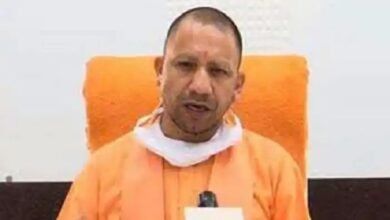[ad_1]
Last Updated: December 05, 2023, 14:36 IST

Lakhbir Singh Rode was the nephew of the slain Khalistani militant Jarnail Singh Bhindranwale. (Image/X)
Lakhbir Singh had been listed as an ‘individual terrorist’ under the Unlawful Activities (Prevention) Act and had been living in Pakistan after fleeing from India
Lakhbir Singh Rode, chief of the banned outfits Khalistan Liberation Force (KLF) and International Sikh Youth Federation (ISYF), died in Pakistan on December 1. Rode had been listed as an ‘individual terrorist’ under the Unlawful Activities (Prevention) Act and had been living in Pakistan after fleeing from India. The 72-year-old fugitive died of a heart attack.
An important player of ISI, Rode was the nephew of the slain Khalistani militant Jarnail Singh Bhindranwale. Banned under the Prevention of Terrorist Activities Act (POTA) on March 22, 2002, ISYF was also close to Islamist militant groups including Lashkar-e-Taiba (LeT). The group was also banned by the UK in 2001.
Lakhbir Singh Rode’s brother and former Akal Takht Jathedar, Jasbir Singh Rode confirmed the news of his demise. Lakhbir Singh Rode has already been cremated in Pakistan, Jasbir noted. Rode was also accused of being involved in the Kanishka bombing.
According to top intelligence sources, Pakistan is harbouring Khalistani terrorists in Lahore, which would explain the secret cremation of Lakhbir Singh Rode.
Earlier this year in October, the National Investigation Agency (NIA) Special Court in Punjab’s Mohali had ordered to requisition of land belonging to Lakhbir Singh under Section 33 (5) of the Unlawful Activities (Prevention) Act.
The court order stemmed from the case filed against Rode on October 1, 2021, of multiple charges, including sections 3, 4, 5 & 6 of the Explosive Substances Act 1908; sections 16, 17, 18, 18B, 20, 38 & 39 of UA(P) Act 1967, Section 21B, 27A, 29 of NDPS Act 1985, and section 120B of IPC.



